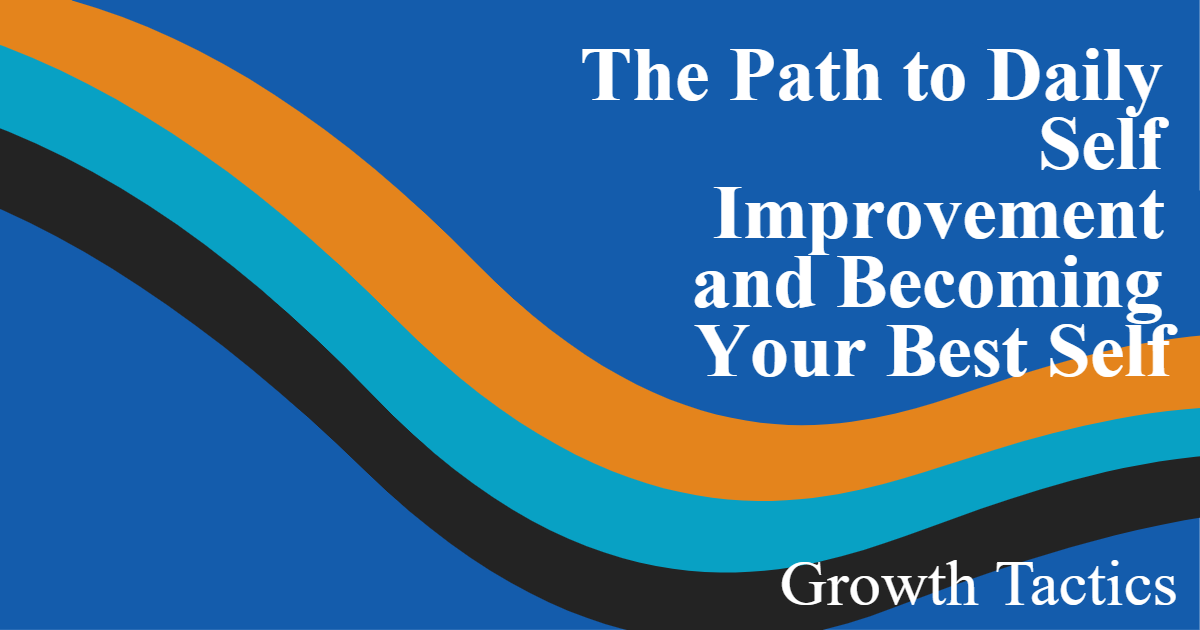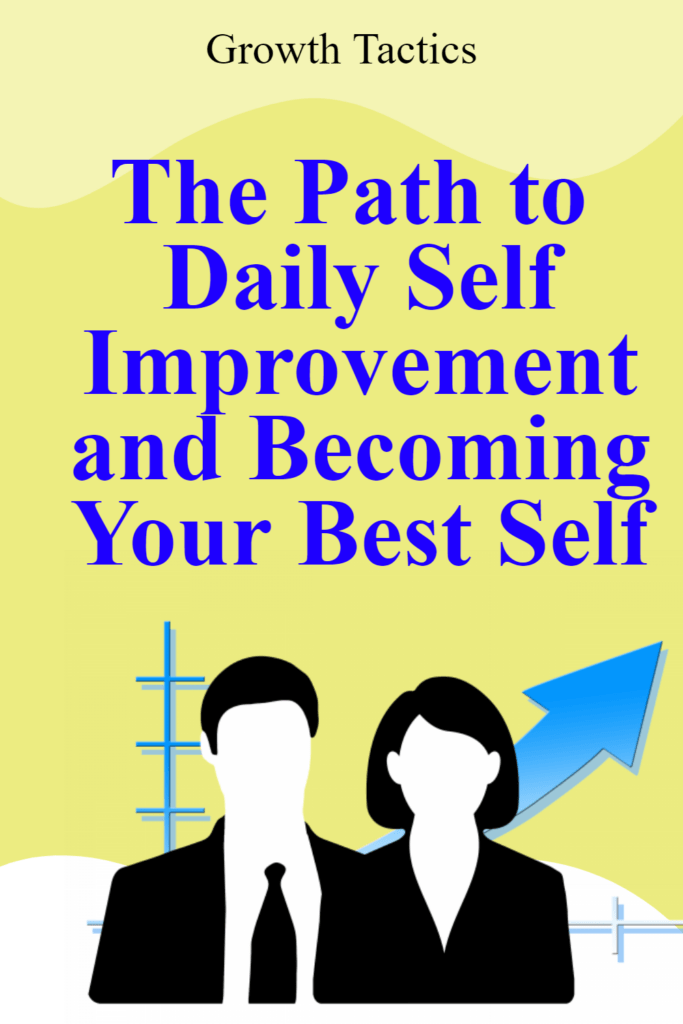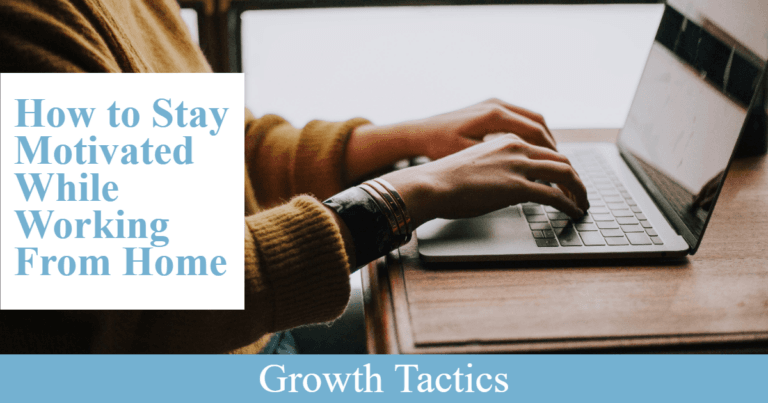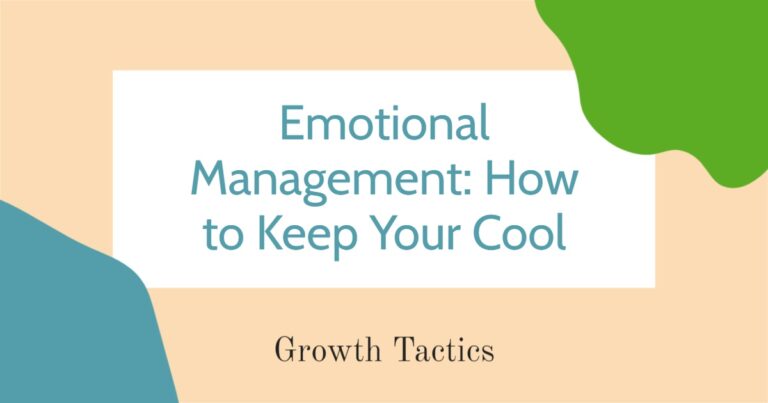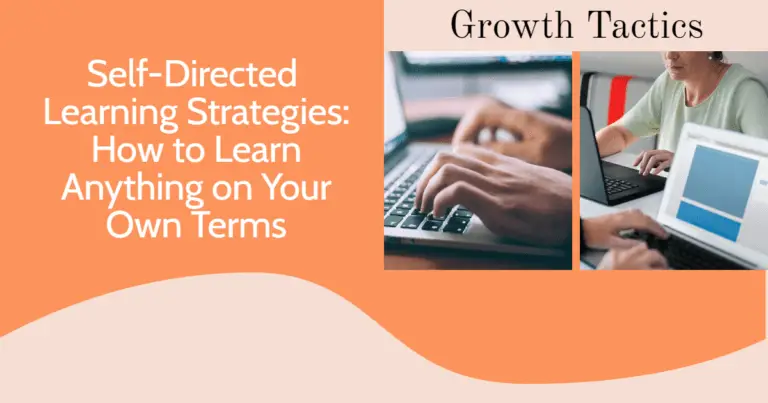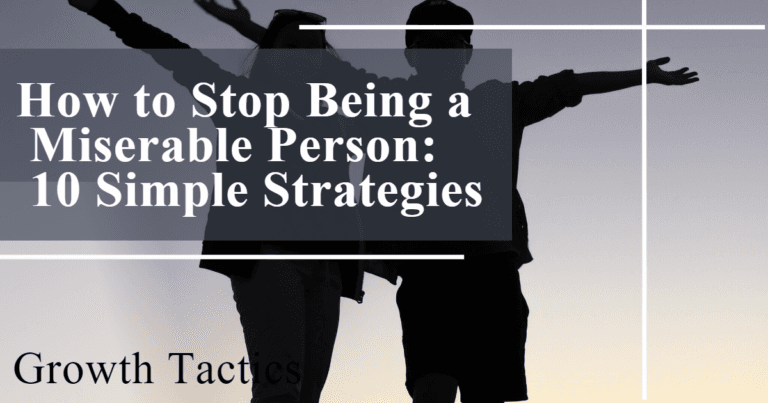Self improvement is the process of making positive changes and becoming the best version of yourself. It involves setting goals to grow personally and professionally and taking action to achieve them. Daily self improvement leads to greater happiness, fulfillment, and success in life.
When you commit to daily self improvement, you open yourself up to new perspectives and possibilities. Self-improvement helps you identify areas for growth and provides you with tools to nurture the skills needed to reach your full potential. The journey of self-improvement allows you to transform both your inner and outer worlds.
Making a conscious effort towards self-improvement can help boost self-confidence, self-awareness, and decision-making skills. It enables you to build healthy habits, reduce stress, and increase productivity. Self-improvement opens doors to amazing opportunities and helps cultivate a more desirable life.
The rewards of daily self-improvement include increased self-love, improved relationships, spiritual growth, financial freedom, and a greater sense of purpose. When you focus on becoming your best self, you’ll find increased joy and satisfaction in all areas of life. Self-improvement is an investment in yourself that keeps on giving.
Jump To Section
Set Achievable Goals

Setting clear, achievable goals is an essential part of self-improvement. When you have concrete goals to work towards, you have a roadmap to follow that will help guide your growth. Here are some tips for setting effective, achievable goals:
- Make your goals specific. Rather than “I want to be healthier,” say “I will exercise for 30 minutes 5 days per week.” Specifics make a goal more actionable.
- Set measurable goals. Include quantifiable markers of progress so you can track your improvement. “I will read one self-improvement book per month” is more measurable than “I will read more.”
- Set a timeline. Attach a specific timeframe to each goal to keep yourself accountable. “I will learn to meditate over the next 3 months” is better than an open-ended goal.
- Start small. Big, ambitious goals can be daunting. Break them down into smaller, more manageable steps you can achieve easier.
- Make goals realistic. Goals should push you out of your comfort zone, but be sure they are still attainable for your current skill level.
- Write goals down. Putting your goals on paper makes them feel more concrete and helps motivate you.
- Re-evaluate regularly. Review your goals often and adjust them as needed. Goals can evolve as you do.
Setting S.M.A.R.T. goals – ones that are specific, measurable, achievable, relevant, and time-bound – will maximize your chances of success on your self-improvement journey. Start with small, incremental goals to build confidence, momentum, and long-term habits.
Get Out of Your Comfort Zone
Getting out of your comfort zone is essential for personal growth and self-improvement. When you stay within your comfort zone, you get stuck in a routine and stop challenging yourself. Pushing yourself outside your comfort zone forces you to try new things, gain new skills, and build confidence.
Stepping outside your comfort zone can be scary at first. But taking small, achievable steps will help you expand boundaries gradually. Start by identifying activities or experiences that make you slightly uncomfortable. Then, make a plan to push yourself to do one of those activities. For example, if public speaking makes you nervous, volunteer to give a short presentation at work. If you’ve always wanted to try rock climbing, sign up for an intro class at your local gym.
As you gradually expose yourself to discomfort, you’ll build mental strength and resilience. Your self-knowledge and capabilities will grow with each new experience outside your comfort zone. You’ll also gain a sense of accomplishment that comes from challenging yourself and trying new things. This boost in self-confidence will motivate you to continue your self-improvement journey.
Pushing your personal boundaries doesn’t have to be dramatic or extreme. Even small acts like having lunch with someone new or learning a new skill can lead to tremendous growth over time. Seeking new challenges and experiences is the key. Stepping outside your comfort zone helps you unlock your full potential.
Cultivate Good Daily Habits
Making small, positive changes to your daily routine can lead to a big impact over time. Try incorporating one or two of these good habits:
- Start a morning routine. Waking up 30 minutes earlier to meditate, stretch, or journal can help you feel more centered and productive all day.
- Read every day. Even if it’s just for 15-30 minutes, daily reading helps expand your mind and vocabulary.
- Exercise. Getting moving, even if it’s just 10-15 minutes per day through walking, yoga, and bodyweight exercises boosts your mood and energy.
- Drink more water. Staying hydrated is vital for your health and concentration. Carry a water bottle as a reminder to sip throughout the day.
- Eat nutritious foods. Fueling your body with whole, unprocessed foods gives you steady energy and focus to be your best self.
- Practice gratitude. Take a few moments each morning or night to reflect on people and things you are grateful for to cultivate positivity.
- Unplug and unwind. Give your brain a break from digital stimulation for stretches during the day to recharge mentally.
- Get organized. Decluttering and creating systems help instill order and control so you can focus energy on self-improvement.
- Go to bed earlier. That extra hour of sleep can make a big difference in how refreshed and motivated you feel the next day.
Building these small, positive habits into your routine, you pave the way for growth and becoming your best self over time. Consistency is key.
Practice Mindfulness and Self-Care
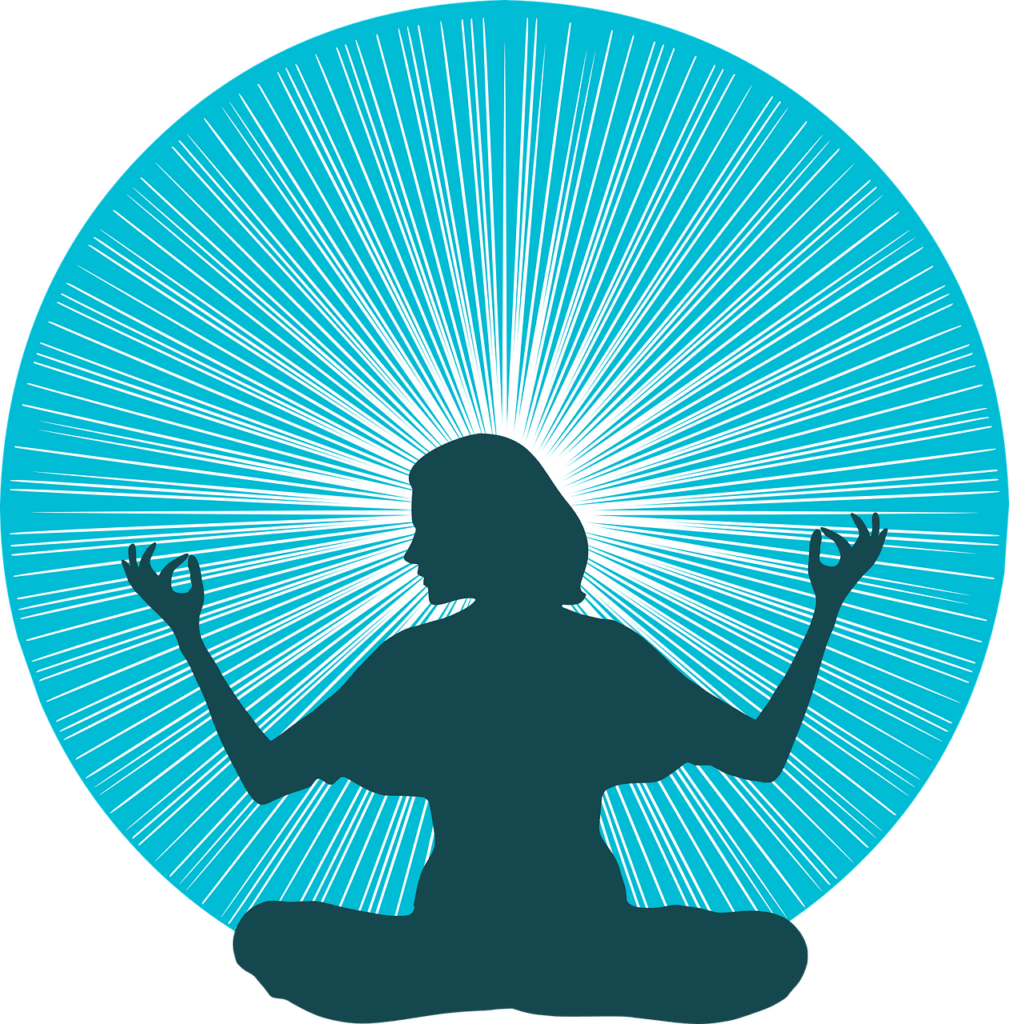
Mindfulness and self-care are essential parts of daily self-improvement. Taking time for self-reflection gets you in tune with your thoughts, emotions, and needs. Setting aside time each day to nurture yourself will help reduce stress, improve focus, and support your self-growth journey.
Some techniques to practice mindfulness and self-care include:
- Meditation – Taking 10-15 minutes each day to meditate can help calm your mind, lower anxiety, and increase self-awareness. Start with short sessions using apps like Calm or Headspace. The simple act of focusing on your breathing is meditative.
- Journaling – Writing down your thoughts, feelings, and goals allows you to process emotions and gain clarity. Journaling is a powerful tool for self-reflection. Try writing morning pages to start your day on a reflective note.
- Self-reflection – Ask yourself questions like “How am I feeling today?” “What do I need right now?” Make time to check in with yourself daily. Identifying your needs helps you address them. Solo walks, drives, showers, or baths create space for self-reflection.
- Positive affirmations – Affirmations help reprogram your mind with empowering beliefs. Repeat positive phrases like “I am worthy” or “I can achieve my dreams.” Affirmations boost self-confidence.
- Breathing exercises – Deep breathing triggers relaxation. Inhale slowly, hold briefly, and exhale fully. Repeat. Or try box breathing – inhale for 4 seconds, hold for 4, exhale for 4.
When you regularly devote time to self-care activities like these, you give your mind and body the nurturing needed to support personal growth and daily improvement.
Read Self Improvement Books
Reading is one of the most effective ways to grow and develop as a person. Self-improvement books provide amazing insights, advice, and perspectives to help you achieve your goals and become your best self. Here are some of the top self-improvement books I recommend:
The 7 Habits of Highly Effective People by Stephen R. Covey – This classic book has sold over 25 million copies for good reason. It provides a step-by-step pathway to developing habits that can improve your effectiveness and success in all areas of life.
The Power of Habit by Charles Duhigg – This bestseller provides fascinating insights into how habits form and practical tips for transforming your habits. It will help you break bad habits and form good ones.
Atomic Habits by James Clear – This is the book to read if you’re looking to build better habits. It offers proven frameworks to make tiny changes that will lead to remarkable results over time.
The Subtle Art of Not Giving a F*ck by Mark Manson – This counterintuitive self-help book will help you stop trying to be “positive” all the time and instead focus your time and energy on what really matters.
Grit by Angela Duckworth – Grit is defined as passion and perseverance for long-term goals. This book shows how grit is a better predictor of success than intelligence or talent alone.
Mindset by Carol Dweck – This book discusses how our mindsets shape our lives. It guides you in cultivating a growth mindset to overcome challenges and achieve more success.
The Happiness Advantage by Shawn Achor – This research-based book reveals how happiness actually fuels success, not the other way around. It provides strategies for becoming happier to get a competitive edge.
Reading even just one of these self-improvement books can provide a tremendous boost in becoming your best self. I encourage you to pick the book that most resonates with you and start reading today!
Learn a New Skill
Learning a new skill is one of the most rewarding ways to grow as a person. It pushes you out of your comfort zone and builds your confidence as you gain competence in an unfamiliar area. Plus, having diverse skills makes you more adaptable and employable.
Some skills worth investing your time to learn include:
- Coding: Even just learning the basics of HTML, CSS, JavaScript, or Python can open up new career opportunities and give you the satisfaction of building something from scratch. Free online tutorials make coding very accessible nowadays.
- Foreign language: Becoming conversant in a new language exercises your brain, connects you with new cultures, and looks great on a resume. Apps like Duolingo make learning a language fun and easy through short, daily lessons.
- Public speaking: Strong communication skills, including public speaking, are invaluable for career advancement and relating better with others. Local Toastmasters groups provide a supportive environment to practice.
- Writing: Whether starting a blog, journaling or taking a creative writing class, developing your writing craft can be incredibly fulfilling. Expressing yourself through writing also boosts clarity of thought.
- Photography: Unleash your creative side by honing your photography skills. Get acquainted with your camera’s manual settings for the most control over your images. Photo walks in your city and online tutorials can accelerate learning.
Your age or circumstances don’t matter, it’s never too late to pick up a new skill. Stay curious and committed to continuous learning and self-improvement throughout your life.
Find Inspiration
Surrounding yourself with people, quotes, and ideas that inspire you can spark motivation to continue your self-improvement journey. Look to those who have achieved success or personal growth in areas you want to improve. Their stories and advice can give you a boost when you feel stuck.
Some ways to find inspiration:
- Read biographies and memoirs of people you admire. Understanding how they overcame obstacles can inspire you to keep going.
- Follow motivational speakers and thought leaders on social media. Seeing their posts on your feed is a reminder to work on yourself.
- Listen to self-improvement podcasts like The Goal Digger, Happier with Gretchen Rubin, and The School of Greatness. Hearing interviews with inspiring guests puts your mind in a growth mindset.
- Collect inspirational quotes and display them in your home or office. Choose quotes that resonate with your goals and values to stay focused.
- Join a mastermind group or online community of like-minded self-improvers. Their enthusiasm can be contagious.
- Find a mentor who has qualities you aspire to have. Their guidance can be invaluable.
Immersing yourself in inspirational media keeps you excited to better yourself every day. Stay open to finding motivation in unexpected places too.
Improve Your Physical Health
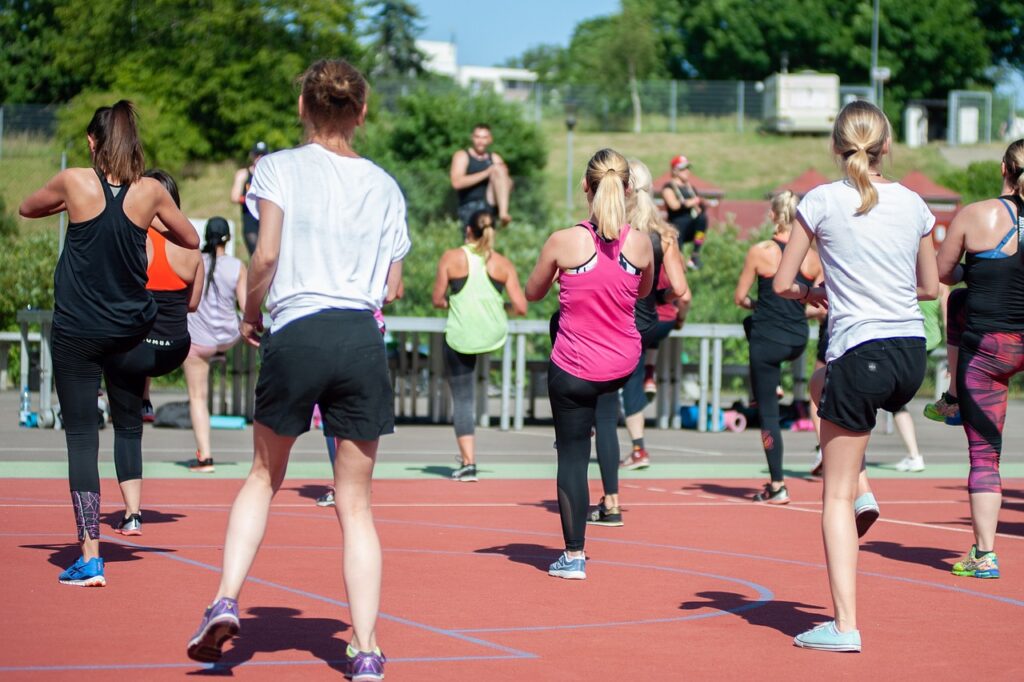
Improving your physical health is an essential part of the self-improvement journey. A healthy body supports a healthy mind and can give you the energy and focus needed to achieve your goals. Make exercise, proper nutrition, and quality sleep a priority.
Exercise
- Start an exercise routine – even 20-30 minutes each day of brisk walking, jogging, cycling, or strength training can provide tremendous benefits. Exercise releases endorphins to improve mood, boost energy, and reduce stress.
- Find activities you enjoy – dancing, hiking, sports, yoga, etc. Having fun keeps you motivated. Vary your workouts to prevent boredom.
- Set exercise goals – sign up for a 5K, aim to do 10 pushups, or walk 10,000 steps a day. Goals keep you on track.
- Schedule exercise – put it in your calendar to become a regular habit, not an afterthought. Make it part of your morning routine to start the day energized.
Diet
- Eat more vegetables, fruits, whole grains, lean protein and healthy fats. These provide your body with premium fuel.
- Reduce processed foods, sugar, salt, and unhealthy fats. Eating well prevents disease and gives you steady energy.
- Stay hydrated – drink plenty of water throughout the day. Proper hydration is vital for health.
- Practice portion control – be mindful of overeating. Stop when you feel satisfied, not stuffed.
Sleep
- Aim for 7-9 hours per night. Quality sleep recharges your body and fuels the brain.
- Establish a relaxing bedtime routine – take a warm bath, read, and listen to calm music. This prepares your body for rest.
- Avoid screens before bed – the blue light interferes with sleep hormones.
- Make your sleep environment restful – cool, quiet, and comfortable. Blackout curtains and a white noise machine can help.
When you care for your physical self, you’ll have the strength and resilience to accomplish your biggest goals and be your best every day.
Nurture Relationships
Healthy relationships are an essential part of personal growth and self-improvement. Investing time in nurturing both personal and professional relationships can help us grow as individuals.
Make an effort to connect more deeply with your friends and family. Set aside quality time for your loved ones where you can have meaningful conversations without distractions. Share your feelings, hopes, and dreams to form deeper bonds. Support each other during difficult times. Show your gratitude and appreciation for having them in your life.
At work, build rapport with colleagues by taking an interest in their lives. Offer to mentor newcomers and provide advice to help them succeed. Collaborate on projects to accomplish shared goals. Maintain an open, respectful dialogue even when disagreements arise. Your professional network can open doors and provide growth opportunities.
By fostering healthy relationships, we surround ourselves with positive people who inspire us. The love and support of those close to us give us strength and resilience to overcome challenges. Nurturing relationships allows us to learn from others’ perspectives and experiences. Caring for others also cultivates empathy, compassion, and selflessness within ourselves. Make relationships a priority in your self-improvement journey.
Wrapping Up
In conclusion, the journey toward daily self-improvement and becoming your best self is a continuous and evolving process that requires dedication, self-reflection, and the willingness to step out of your comfort zone. Individuals can foster personal growth and development by setting clear goals, adopting a positive mindset, embracing failure as a learning opportunity, and practicing gratitude and mindfulness.
Consistency in these efforts compounds over time, leading to significant transformations not just in one’s abilities, but also in one’s sense of self-worth and fulfillment. Remember, the path to becoming your best self is uniquely yours; it’s about progress, not perfection.

